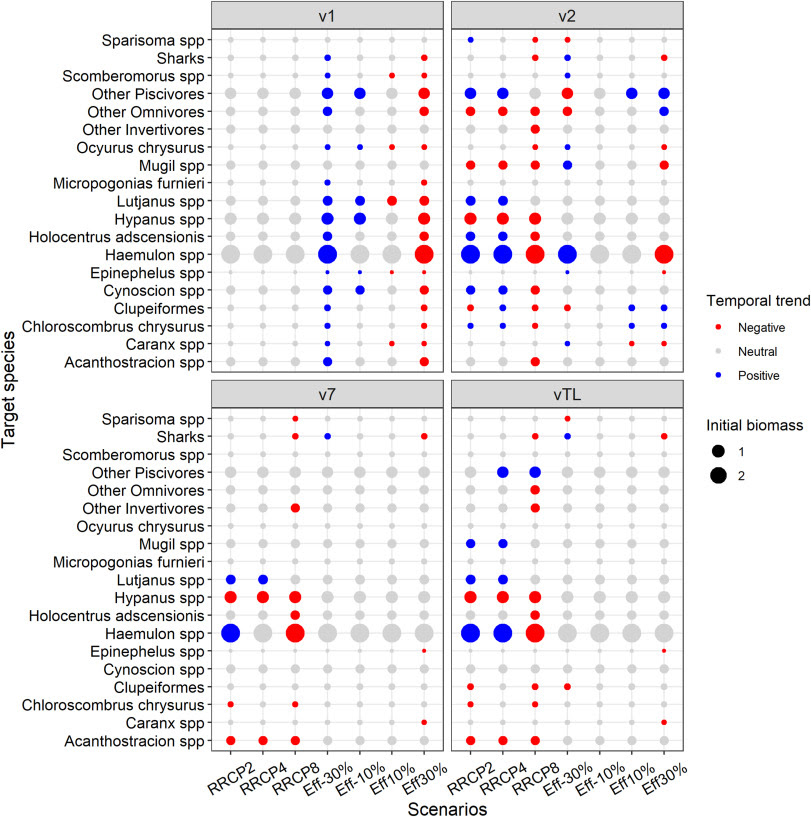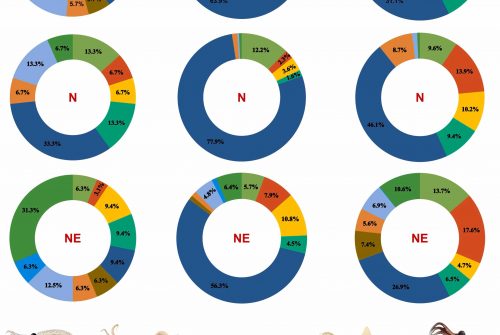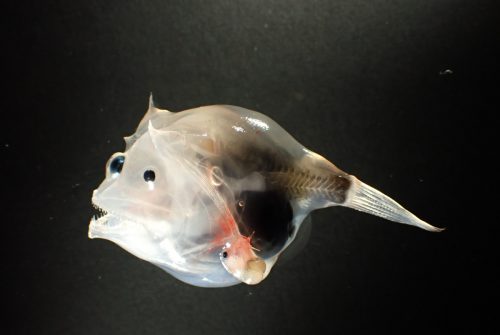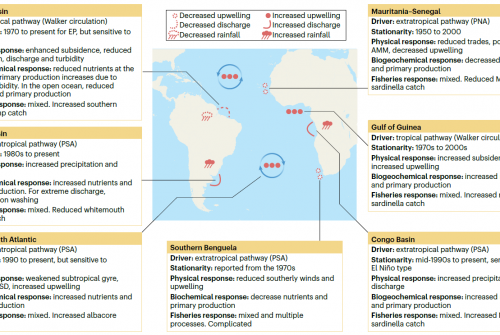
Small-scale fisheries, especially those from developing countries, are vital for millions. Understanding the impact of environmental and human factors on fish stocks and yields and how they might change is crucial to ensure the sustainable use of aquatic resources. We developed an ecosystem model using Ecopath and Ecosim (EwE) to investigate changes in target species biomass and ecosystem attributes over 83 years (2017–2100) caused by different scenarios of fishing pressure and ocean warming in the Brazilian Northeastern continental shelf. The simulations considered three IPCC climate change scenarios (RCP2.6 [0.42 °C], RCP4.5 [1.53 °C], and RCP8.5 [4.02 °C]) and four fishing pressure scenarios: two with increased pressure (10% and 30%) and two with decreased pressure (−10% and −30%). The Ecopath model indicated that the Brazilian Northeastern continental shelf ecosystem is a grazing-based system with high biomass in macroalgae and detritus compartments, supporting a diverse community of consumers. Our simulations projected overall reductions in the biomass of target species, mainly under extreme climate change. Increasing temperatures and fishing efforts reduced the biomass of large predatory species and the food web length in several scenarios. Although projected changes in ecological network and information metrics were of lower magnitude, results predicted declines in production/respiration ratio, material cycling, and ascendency (variable related to trophic specialization, internalization, and material cycling) with climate change. These declines were likely linked to increased respiration rates, metabolic costs, and lower trophic efficiency with elevated temperatures. Together, our results show how climate change and fishing pressure can change the structure of coastal ecosystems, potentially leading to undesirable alternative states for fisheries. Our approach demonstrates the effectiveness of ecosystem-based modeling in projecting likely trajectories of change, which can be especially useful for resource management in data-limited conditions.
DOI: doi.org/10.1016/j.marenvres.2024.106909
References
Angelini R., Lima M.A.L., Lira A.S., Lucena-Frédou F., Frédou T., Bertrand A., Giarrizzo T., Steenbeek J., Coll M., Keppeler F.W. 2025. The projected impacts of climate change and fishing pressure on a tropical marine food web. Marine Environmental Research, 204: 106909.







